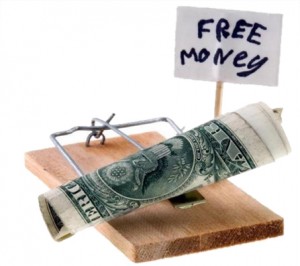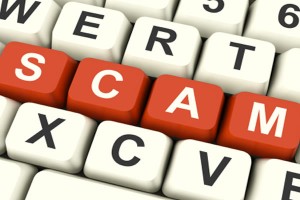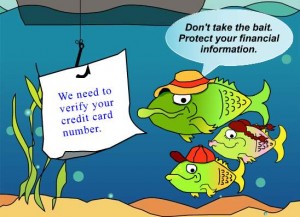-

Welcome to the second part of the freebie hunting guide that we have put together to simplify for you the entire process of finding free samples online. We aim to equip you with enough knowledge, tips, and tricks for you to be able to successfully receive sample after sample delivered straight to your mail box.
In the previous post we looked at how freebie sites work, what to expect when you place sample requests with them, and how to use these sites to your advantage. We spoke about the strategy you should use to translate your time spent on freebie sites into actual benefits. ie. Free Samples!
In this installment of the guide we look at the all-important question of how to tell a legitimate sample or site from a not-so-legit one.
It’s an ever important question, and in our experience the answer is not always obvious or forthcoming to those looking for free product samples online. Just because a web page says they are offering a sample of a certain product doesn’t mean you are certain to receive a sample from them. This is trure many times even when talking about a legitimate sample offer.
But then there are those not so legitimate sample offers. And learning to tell them apart will make all the difference in helping you spend your time wisely and productively when seeking out free samples.
You have our sympathies if you have ever fallen prey to unscrupulous elements who have set up their dodgy ‘business’ online with the express purpose of duping unwary visitors.
But we can assure you that by the time you are done reading this post you will never again fall into any such trap. We’ll teach you how to find legitimate free samples and also discuss a host of things ranging from phishing scams to industrial freebies.
With that established, let’s get on with how to tell the real thing from the fake one, and make your online freebie hunting experience safe and productive.
How to spot a con

We all love the Internet for its sheer convenience, comfort, and the wonderful world of opportunities it has opened to us.
Unfortunately for us, con artists of all kind also love this medium. Wherever there are people flocking to in large numbers, scammers are always just round the corner.
Most of us have at some point received emails from somebody claiming to be a long lost African relation of ours, or informing us of such a now-deceased relation, who just happens to have left millions of dollars to us in inheritance. And that money could be ours if only we would send them a check of a certain amount so that they could get the process of transferring the inheritance started.
Do you know how many people have been taken in by such fraudulent promises?
Well, we don’t have the exact number but if news reports are anything to go by, people across the world have lost their savings to such scams. In fact, people still continue to be taken in by them.
There’s a lesson here to be learned for all of us who use the Internet: Scammers prey on our lack of caution and knowledge, and our tendency not to cross-check claims.
They also deal in large numbers. They know that if they keep baiting, someone somewhere will bite.
There’s not much you can do about people adopting unethical means to make money or extract information, which is what fake sample websites do, but you certainly can improve your knowledge regarding how this space functions and eliminate the chances of you ever making a wrong move.
Which leads us to our next topic, tips on how to spot scams!
Does the website look… weird? If so maybe it’s not a legit sample.

Yes, ‘weird’ can be hard to define and definitely is subjective but we are sure you get what we are referring to.
In the online space, the website is a company’s virtual shop. What are the chances of a legitimate business putting up a weird and shady real life brick and mortar shop with a strange sounding name?
None.
The same criteria applies to the Internet as well.
When looking for samples pay close attention to any funny business on the websites you visit.
- Does the site look suspiciously blank? Either a noticeable lack of text, graphics, or both.
- Does it seem as if this entire website exists for the sole purpose of offering you a single sample and doesn’t seem to serve any other practical function?
- Is it lacking in the basic navigation, and functions you would expect to find on a legit website?
- Does the website launch lots of pop-ups? Or is it otherwise intrusive?
- Are there lots of spammy-looking external links on this page?
- Does the text on the website sound unprofessional and is full of school boy errors?
If even one of these apply then the chances of you actually receiving a sample from that site is slim to nil. So you best be on your way from them quickly and without giving over any personal information.
Legitimate businesses actually care what their websites look like because the consequences of ignoring that are heavy. A legitimate company’s website will usually seem well thought out, have an easy to navigate design, and will serve a practical purpose for the company besides that of giving away samples.
Check out the website’s credentials
Alright, let’s say you’ve found a sample that looks legit. It’s of a well known product and it even appears to be offered directly by the manufacturer. But, wait! Does the domain name match the company? Sometimes phishing scams will illegally use the logo and design of a companies website in order to trick into thinking that you are dealing directly with that company.
These types of “imposter” scams are extremely easy to spot once you know what to look for. While it’s as easy as ‘copy & paste’ for scammers to set up impostor websites there is one feature they can’t copy, and that’s the domain name.
So if you think you are requesting a sample from a company like ‘Poise’ but then you look at the domain name see something completely unrelated you might want to question who you are actually dealing with.
Legitimate samples are almost always hosted on the main domain name for a company, and very rarely if ever will they offer their samples through other domains. So always make sure that the domain name matches the company you think you are dealing with, or at the very least make sure that the company offering the sample has some sort of official connection with the domain offering the sample.
However keep in mind this doesn’t apply if a site is merely telling you about a freebie, as opposed to offering it themselves. With legitimate free sample sites, like this one, we tell you about a freebie and give you a link that takes you to the company who is offering the sample. And it’s on this external link (the direct source for the freebie) where you should exercise caution in making sure you know who you are dealing with.
Real freebie sites will always try to make sure they filter out scams as best as humanly possible because their reputations depend on sharing accurate information with their visitors. However keep in mind that you, as the user, are the last line of defense against scams, and you are ultimately responsible for who you choose to share your information with.
Steer clear of phishing scams

Phishing sites or pages aim to procure your personal information in the guise of offering you something in return, which they don’t. They will ask you for you for all kinds of personal information, bank accounts, credit card information, passwords etc. and use that information for identity theft.
Phishing scams as far as freebie sample hunting is concerned are pretty easy to spot. Just look at what product is being offered and by whom. If the website offering the sample has no official ties with the company that makes it then it’s likely not real. Also be sure to check out the homepage of the domain that the sample is hosted on. If it’s not a real website with an actual homepage that makes sense then it’s likely not a legit offer.
Are they asking for money or a credit card number to claim this freebie?
If so, that is where they lose credibility. We actually wondered if we should even include this point at all since it seems rather obvious that any company or website that requires a credit card in order to claim a “freebie” probably isn’t being straightforward with their offer and should be avoided.
Never, We repeat, NEVER give your credit card number for an offer that is advertised as free. There is only one reason a company has any business obtaining your CC number, and that is if they intend on charging you money. If they are offering you something for free then there is no legitimate reason for them to ask for your credit card number.
Does the offer sound too good to be true?
Ever see any of those sites claiming to offer a ‘Free iPhone’, a ‘Free Laptop’, or a free gaming Console? They are never real freebies, and most of those types of offers operate on a business model that requires you to earn ‘points’ to redeem certain prizes. And many times earning these points can mean giving your personal information to everyone and his brother, and even spending thousands of dollars.
Any truly legit freebie will be of something relatively cheap. No company stays in business by going around giving out free electronics or high ticket items. So when you are looking for free stuff online always remember that anything that seems too good to be true most likely is.
What do legit samples look like?

We have spoken so far of what to avoid. Let’s now turn our attention to what to go for.
Knowing what to avoid is only a part of the smart freebie hunting strategy. The other part is determining how to tell the real thing. It’s a diverse world out there, but sticking with the following should stand you in good stead:
Samples of branded products on manufacturer’s website
These are as legitimate as they come. If a well known company is offering samples of their products on their official web page then it’s most likely a real offer. Not only that, but it’s also highly likely that you will actually get a sample when you request one because these big companies are used to dealing with requests in high numbers. Furthermore, big companies also aggressively push the products that are in the pre-launch stage, or those that have only been just launched, in order to popularize them. So these offer are the ones that are most likely to result in a freebie landing in your mailbox.Samples of lesser known products
These are also usually legitimate and honest when they offer samples. But the problem with smaller companies and lesser known products is that it’s more likely they will run out of samples sooner or be completely overwhelmed by the number of requests they receive. It’s unlikely they will have in place the resources or logistics to handle thousands and thousands of requests. So you do have a decent chance of receiving these samples, but not as much of a chance as with receiving well known products from major companies. (Refer to our earlier post to learn more about the criteria companies use to determine whom to send their free samples.)Industrial samples
These are samples offered by companies who intend to only distribute them to professionals within a certain industry and not to the general public. Although these are legitimate offers their makers will not honor sample requests coming from regular people as you simply aren’t the demographic they are targeting. We suggest you stay away from such samples and look elsewhere.Printable coupons
They can be anything from grocery coupons, restaurant coupons, or just 50% off a particular product. These are solid and reliable for the most part, but just make sure you check with retailers before bringing in printed coupons. Nothing is more disappointing than to get all the way to the checkout line just to find out that the store you are at wont accept your coupons. So always make sure you check store policies before shopping to prevent that from happening.Samples found through legit freebie sites
As mentioned in part one of this guide, most freebie sites are simply directories that tell their visitors about other companies who are offering samples. The website you are on now is one such legitamte freebie site. We do not make or distribute the products ourselves, we are merely bringing them to your notice. A legit freebie site will try to be honest about all the details of the offers they list. If there are catches or special criteria you must meet in order to qualify for a sample, then the freebie site should tell you about them up front. And if there are too many catches, or if something just doesn’t seem right about an offer then a legit freebie site will usually avoid posting it all together. Our reputations rely on our visitors feeling that they can trust us to provide them with accurate information about legit freebies. So we try to take that very seriously, and that’s why a legit freebie site can be your best friend when you are trying to procure samples.
Conclusion:
When it comes to online or even real world dealings, legitimacy and credibility are the factors you should be looking for. Don’t take things at face value. In order to determine the authenticity of an offer you need to ask questions and look at it from a number of angles. Hopefully now with all the information covered here you are better equipped to tell fake freebies from the real deal.
We cannot emphasize enough the importance of staying vigilant on the internet. The web is still a largely unregulated medium where people routinely fall for scams for a variety of reasons. Sometimes its naivety, sometimes its ignorance of how things work, and sometimes its a momentary lapse of judgment or lowering of their guard.
Our instincts often serve us well but sometimes we don’t give them enough credit. If something doesn’t feel right, pay attention to that feeling because it may save you a lot of grief.

